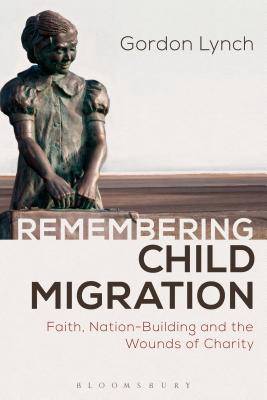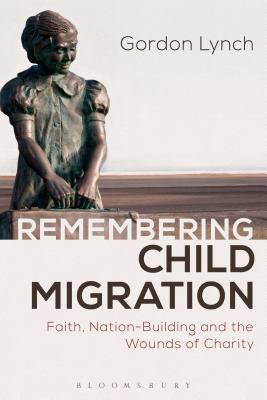
- Afhalen na 1 uur in een winkel met voorraad
- Gratis thuislevering in België vanaf € 30
- Ruim aanbod met 7 miljoen producten
- Afhalen na 1 uur in een winkel met voorraad
- Gratis thuislevering in België vanaf € 30
- Ruim aanbod met 7 miljoen producten
Zoeken
Remembering Child Migration
Faith, Nation-Building and the Wounds of Charity
Gordon Lynch
Paperback | Engels
€ 62,95
+ 125 punten
Uitvoering
Omschrijving
Between 1850 and 1970, around three hundred thousand children were sent to new homes through child migration programmes run by churches, charities and religious orders in the United States and the United Kingdom. Intended as humanitarian initiatives to save children from social and moral harm and to build them up as national and imperial citizens, these schemes have in many cases since become the focus of public censure, apology and sometimes financial redress.
Remembering Child Migration is the first book to examine both the American 'orphan train' programmes and Britain's child migration schemes to its imperial colonies. Setting their work in historical context, it discusses their assumptions, methods and effects on the lives of those they claimed to help. Rather than seeing them as reflecting conventional child-care practice of their time, the book demonstrates that they were subject to criticism for much of the period in which they operated. Noting similarities between the American 'orphan trains' and early British migration schemes to Canada, it also shows how later British child migration schemes to Australia constituted a reversal of what had been understood to be good practice in the late Victorian period.
At its heart, the book considers how welfare interventions motivated by humanitarian piety came to have such harmful effects in the lives of many child migrants. By examining how strong moral motivations can deflect critical reflection, legitimise power and build unwarranted bonds of trust, it explores the promise and risks of humanitarian sentiment.
Remembering Child Migration is the first book to examine both the American 'orphan train' programmes and Britain's child migration schemes to its imperial colonies. Setting their work in historical context, it discusses their assumptions, methods and effects on the lives of those they claimed to help. Rather than seeing them as reflecting conventional child-care practice of their time, the book demonstrates that they were subject to criticism for much of the period in which they operated. Noting similarities between the American 'orphan trains' and early British migration schemes to Canada, it also shows how later British child migration schemes to Australia constituted a reversal of what had been understood to be good practice in the late Victorian period.
At its heart, the book considers how welfare interventions motivated by humanitarian piety came to have such harmful effects in the lives of many child migrants. By examining how strong moral motivations can deflect critical reflection, legitimise power and build unwarranted bonds of trust, it explores the promise and risks of humanitarian sentiment.
Specificaties
Betrokkenen
- Auteur(s):
- Uitgeverij:
Inhoud
- Aantal bladzijden:
- 192
- Taal:
- Engels
Eigenschappen
- Productcode (EAN):
- 9781472591128
- Verschijningsdatum:
- 14/01/2016
- Uitvoering:
- Paperback
- Formaat:
- Trade paperback (VS)
- Afmetingen:
- 155 mm x 231 mm
- Gewicht:
- 294 g

Alleen bij Standaard Boekhandel
+ 125 punten op je klantenkaart van Standaard Boekhandel
Beoordelingen
We publiceren alleen reviews die voldoen aan de voorwaarden voor reviews. Bekijk onze voorwaarden voor reviews.








